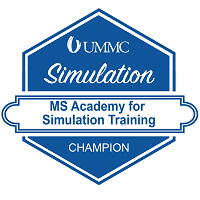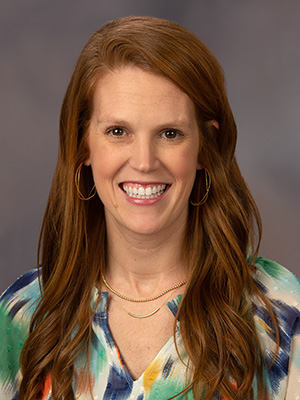Main ContentMississippi Academy for Simulation Training
In 2017, the Hearin Foundation provided a four-year grant to the University of Mississippi Medical Center to begin the Mississippi Academy for Simulation Training (MAST). Founded by Dr. Alaina Herrington, the MAST mission is to provide statewide simulation educator training, access to University of Mississippi Medical Center Simulation Centers through the Office of Interprofessional Simulation, Training, Assessment, Research & Safety (ISTARS), and communicate a statewide expectation for recognition of the value of pedagogically-advanced training curricula, contemporary educational/workplace communication techniques, and the highest ethical standards in the use of simulation in healthcare education. The grant was extended through 2026 to continue serving the educators in the state of Mississippi.
Vision
The vision of MAST is to enhance lifelong learning among faculty, staff, students, and the community by enhancing the professional development of health care leaders throughout Mississippi, which will enhance patient safety and the quality of health care through the use of high-fidelity simulation technology.
History of the program
In 2017, the Hearin Foundation provided a four-year grant to UMMC to begin the MAST. This grant was designed to establish a unique statewide coordination of simulation-based training for the nursing workforce. Through the grant, UMMC will provide a statewide free/low cost simulation educator training, access to the new UMMC simulation education facilities, and the development of common benchmarks for simulation education.
Research shows there will be a large nursing shortage in the near future. Mississippi schools of nursing are trying to meet the future needs of the population. However, clinical sites are becoming less of an option for schools to utilize for students to complete their curriculum. The National Council of State Boards of Nursing (NCSBN) has approved simulation replacing clinical hours up to 50% time if all simulation guidelines are met (Alexander et al., 2015). Using simulation to replace clinical time will allow schools of nursing to compensate for the loss in clinical sites and allow for more nursing graduates to meet the demands of the state of MS’s predicted nursing shortage. However, in order for simulation to be utilize, schools of nursing must meet the NCSBN Guidelines. These guidelines require that:
- There is a commitment on the part of the school for the simulation program;
- The program has appropriate facilities for conducting simulation;
- The program has the educational and technical resources and equipment to meet the intended objectives;
- Lead faculty and simulation laboratory personnel are qualified to conduct simulation;
- Faculty are prepared to lead simulations; and
- The program has an understanding of policies and processes that are a part of the simulation experience, appropriate facilities for conducting simulation.
Many schools of nursing do not have appropriate facilities for conducting simulation, as simulation equipment is costly and requires continuous maintenance and upkeep. In addition, many of the nursing educators in the state are not qualified to conduct simulations because they have not been trained in simulation pedagogy. This type of training is very limited within our state and can cost $2500 or more per educator. The investment made in simulation education facilities and personnel by the Robert M. Hearin Foundation and the University of Mississippi Medical Center provides state-of-the-art resources and educators to address these concerns.

Free simulation educational opportunities
The Mississippi Academy for Simulation Training (MAST) offers a free online simulation foundation course to all nursing educators throughout the state of Mississippi. A Dean may nominate one nursing faculty member to participate in each cohort. Participants will receive 25.5 CEUs and have the option of completing a final course project to receive a digital credential in simulation education. To nominate a faculty member at your school, complete the MAST Faculty Online Foundations Training Request Form.
Leadership

Hannah Hogg occupies the position of Director of the UMMC MAST. She is serving in a part-time capacity while she maintains her current position as Instructor in the School of Nursing at UMMC within the Accelerated Bachelor of Science in Nursing (BSN) Program. The MAST is supported by a grant from the Robert M. Hearin Support Foundation to advance best practices in simulation education in nursing across the state of Mississippi.
Hogg has been a nurse for over 10 years working in multiple areas such as general pediatrics, outpatient specialty clinics, education, and simulation. She began her career in nursing education and simulation at Central Piedmont Community College in Charlotte, North Carolina, in 2015. In 2019, she became an instructor at the School of Nursing at UMMC after moving back to Mississippi.
Hogg's educational background includes a BSN and MSN from the University of Mississippi Medical Center.
Hogg is a Certified Healthcare in Simulation Educator (CHSE) and Certified Nurse Educator (CNE) as well as a member of the Society of Simulation in Healthcare (SSH) and International Nursing Association for Clinical Simulation and Learning (INACSL). She has presented at national and local conferences and workshops and was selected as a participant in the NLN 2023 Leadership Development Program for Simulation Educators program.